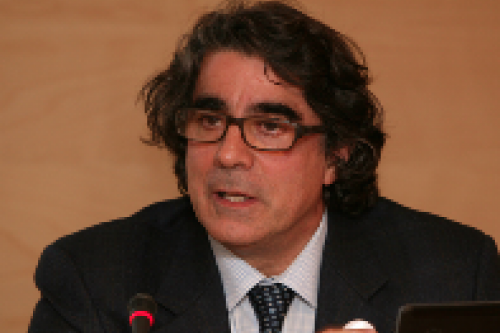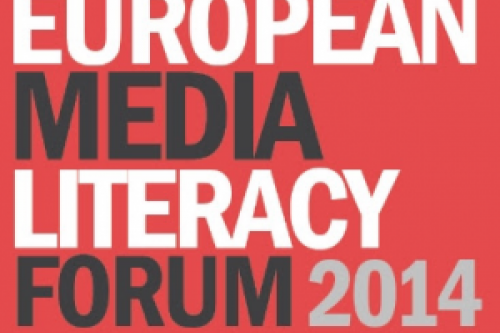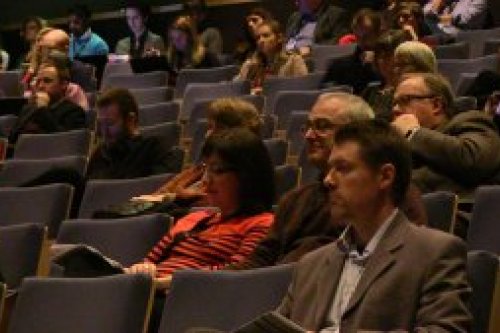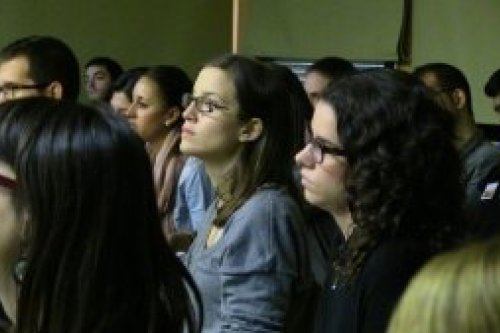


Languages
- Español
- English
Jordi Torrent on the Paris Forum: "Media literacy will be more and more relevant to all communities in the world"
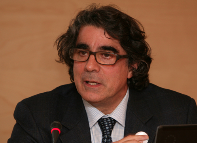
Jordi Torrent, from the United Nations Alliance of Civilizations (UNAOC) will be one of the speakers at the European Media Literacy Forum. Torrent has said that "Media literacy will be more and more relevant to all communities in the world; from the most isolated villages to the centers of political powers as well".
Jordi Torrent, Project Manager on the UNAOC Media Literacy Program, coordinates initiatives such as the Young Video Festival Plural +. The Alliance of Civilizations develops and implements educational initiatives that promote intercultural dialog while advancing national and international media literacy education initiatives and policies.
Follow Torrent's ideas at the European Media Literacy Forum in Paris, which will be held on 27-28 May, 2014 at UNESCO headquarters.
GCE: What are your expectations towards the European Media Literacy Forum? What advances, concerning policies, research and cooperation should be expected from it?
JT: Ideally I would like to see coming out of the Forum a unified regional network that is able to exert enough political pressure so that Media and Information Literacy (MIL) become part of all European public schools curricula, from Kindergarten to the last year of High School, and not as an optative course or workshop, but mandatory as language and mathematics are.
In order for this to happen, future educators need to be introduced to MIL during their preparation years at the Schools of Education and Pedagogy. Remembering that MIL is not only the technical ICT skills of how to use a computer, the Internet, create a blog, etc., but much more. MIL includes the development of critical thinking skills applied to media messages (reception and production- language), ethical and civic values relevant to media messages (citizenship education), media representation of history and cultures (social studies), creativity (arts programs), etc.
European MIL experts need to strengthen their networks, creating the necessary civic society and political power to demand MIL in all the schools of the region.

GCE: What are the main challenges that Media literacy is facing at an international level?
JT: The main challenge is the misunderstanding that MIL is mainly transferring technical ICT skills to students. As explained above, MIL is much more than that. It is an integral part of citizenship education, MIL is also an active element towards facilitating the development of truly representative democratic societies. And that is a challenging proposal for some political and industrial interests.
GCE: We are expecting 300 participants in the Forum, most of them stakeholders in this field, not only from Europe but also from other continents, mainly Africa and America. There are also participants from ministries, industry, social organizations, film libraries, universities, regulatory authorities, etc...: What should we expect from this opportunity for dialogue?
JT: It is a great opportunity to create consensus, to push forward the agenda for MIL education in all public schools of Europe. It is also a wonderful opportunity to learn from other experiences and resources coming out of other areas of the world.
GCE: Projects like the Unitwin program and the MILID Network are fostering media literacy and sharing different cultural perspectives in intercultural dialogue. Do you think that media literacy is gaining worldwide importance or is it only important in those contexts with more media density?

JT: Media Literacy is an Anglo-Saxon term, often difficult to translate into other languages. I also like ‘Educommunication', a term connected to Paulo Freire's ideas on education. And here we encounter another one of the challenges that we are facing. Ultimately we need to ask ourselves: What is Education? What role does Education play in the development of a more inclusive, peaceful and sustainable world?
As Neil Postman said: "Teaching is a Subversive Activity". MIL is recognizing the challenges and proposes avenues for sustainable development. How can we combine the ‘global village' with living and creative autochthonous communities and cultures? With the arrival of the smart cell phone, the development of the internet of things and the absolute global access to internet (Google, Facebook, etc. are working on it) MIL will be more and more relevant to all communities of the world. For the most isolated ones from the centers of political powers as well.

GCE: Does UNAOC have any specific presentation or project to propose/launch at this forum?
JT: Yes. We would like to highlight at least three initiatives:
Firstly, the interactive web-based MIL Curriculum for Educators that we have developed with UNESCO. Secondly, the youth video festival on migration, diversity and social inclusion that we are developing with IOM: PLURAL+, and finally the appPEACE, the challenge on apps and games for intercultural dialogue and conflict prevention that we are developing with UNDP.


